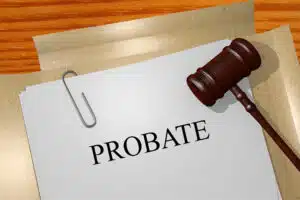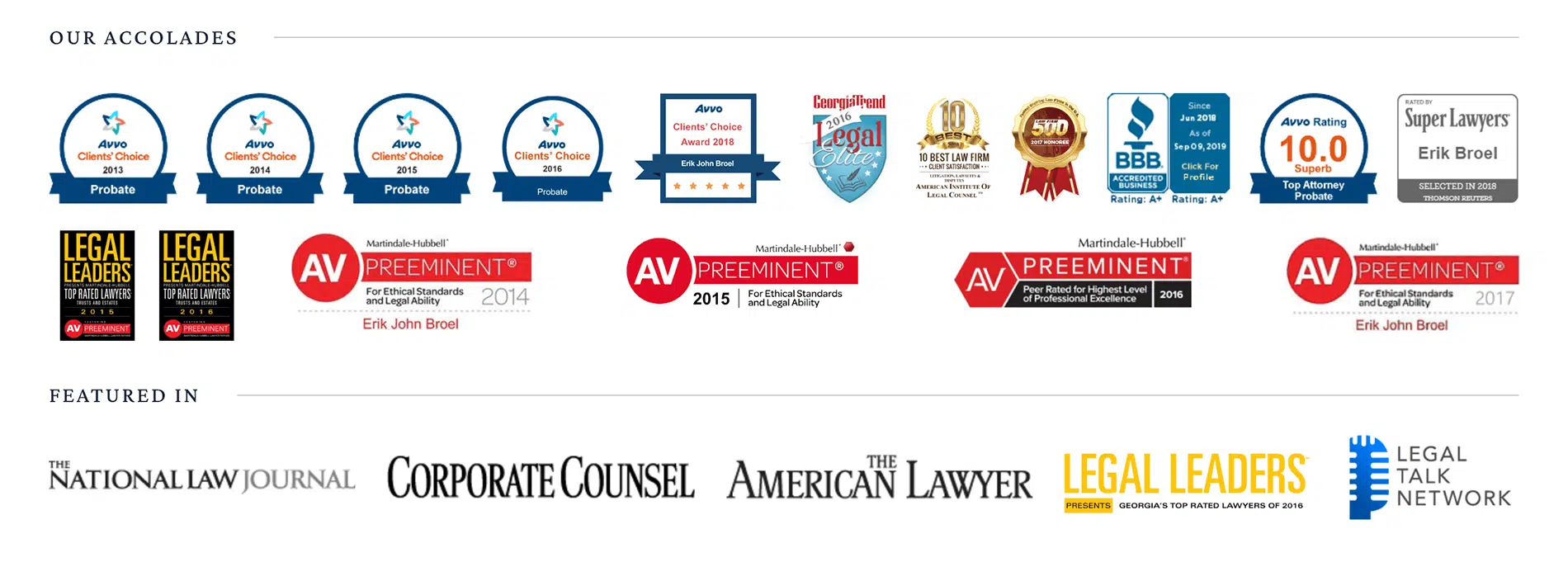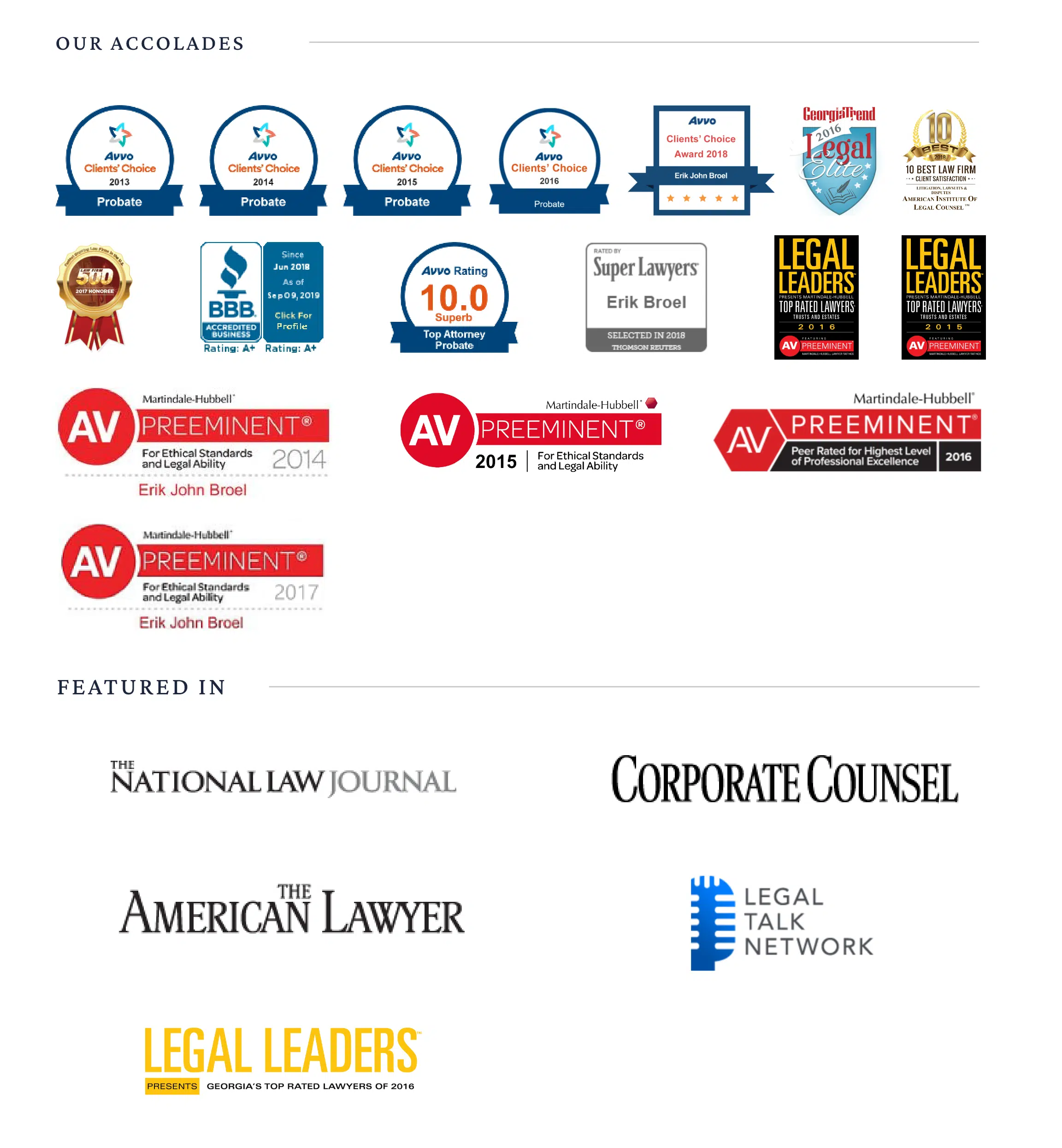If the deceased leaves an unclear will, there can be a lot of confusion and chaos. This will eventually lead to misunderstandings and frustrations among the loved ones. Who can be named as an estate beneficiary? If you are an heir, are you automatically a beneficiary? If a deceased left a will with nominated one or multiple beneficiaries, will it still go through a probate process? What information can you receive if you have been named beneficiary of a will? And what rights do you have? These are questions that our lawyers face every day.
If you want to learn more about beneficiaries, continue reading to familiarize yourself with the process.
An estate is everything comprising all the assets of a deceased person. This can include financial accounts, brokerage accounts, real and personal property, vehicles, land and real estate, investments, financial securities, retirement accounts, life insurace policy, jewelry, household furnishings, and other assets the decedent owned.
An estate beneficiary is a person or organization that will receive a portion or the whole inheritance from the estate after a person’s death.
In terms of the estate law, there are two terms you may have heard to describe these people: “heirs” and “beneficiaries.”
Both terms refer to the people who may inherit something from the estate when you pass away — and many people use “heir” and “beneficiary” interchangeably. But while they are similar, there are significant legal differences between the two words:
On short,
If someone names beneficiaries in their will, their legal rights to claim the decedent’s assets outrank the heirs’ rights.
Beneficiary designation in a will is important because it specifies who the deceased wanted to receive their estate. Also, the late person can be confident that those to whom he’s decided to give the inheritance are assumed to receive it.
Besides, having beneficiaries simplifies settling the deceased’s estate and can reduce the potential for stressful situations for the surviving relatives.
If someone does not leave a will with designated beneficiaries, the estate will be distributed per intestate state law, which may differ from what the deceased truly wanted.

A person can name a beneficiary for almost anything related to his money or property. Here are some examples:
In the category of non-probate assets can be included:
There are two types of beneficiaries: primary beneficiary and contingent beneficiary.
A primary beneficiary is the first individual the deceased has chosen to receive the specified asset. While other beneficiaries also may be listed in estate documents, this person or organization will receive all the estate assets.
Contingent beneficiaries are the second beneficiaries. They are the individuals that the deceased has chosen to receive the specified asset if the primary beneficiary passes away or cannot be located. You can name more than one secondary beneficiary and decide how the assets would be divided between them.
The beneficiary that the deceased had specified in their will to receive the residual estate.
The residual estate includes any assets the deceased owned but was not specifically mentioned in the will.
When choosing beneficiaries, the deceased could also designate any friends, neighbors, or anyone they wish to receive the estate as their beneficiaries in their will.

As an estate beneficiary in Georgia, you are an interested party to the estate and have several estate beneficiary rights. At the most basic level, you are entitled to:
These are just a few examples of the rights of beneficiaries during probate in Georgia, there may be other rights that are not listed here.
In Georgia, once the probate court has appointed the executor, the personal representative is required to send notice to the will’s beneficiaries to notify them that:
Once the estate is opened and an executor is appointed, beneficiaries can request information regarding the estate’s assets and liabilities from the executor.
Beneficiaries are interested parties to the estate and have the right to know what is coming into and going out of it. They can also inquire about the estate’s progress and the estimated timeline for administering it.
The designated beneficiary should be allowed to see a copy of the Last Will & Testament. If the person who has the will refuses to provide a copy to heirs or chosen beneficiaries, please get in touch with our office to discuss your situation and potential options.
In Georgia, a testator can update their will and estate plan anytime in the lifetime without notifying the beneficiaries.
If the deceased has already passed away, the beneficiaries cannot be removed from the will.
However, several specific circumstances may change what a specified beneficiary may receive from the estate:
There may be other examples of beneficiaries receiving less than they are supposed to receive. We suggest speaking with a probate attorney regarding your specific situation.
For the designated beneficiaries of a will to receive their inheritance, the testament would first have to be probated and accepted by the court as a valid Last Will and Testament. Also, creditors must be satisfied before beneficiaries receive their inheritance.
Unless the probate court states otherwise, the executor typically has no specific deadline to pay the bequests.
In Georgia, several factors influence how long the executor must pay the beneficiaries:
Georgia probate estate law stipulates how an executor pays beneficiaries. Under it, the personal representative may distribute the remaining assets to heirs after all debts, taxes, and administration expenses have been paid to creditors.
Generally, Georgia law requires the executor to file an inventory and annual returns with the probate court.
The will may exempt the executor from that requirement. If that is the case, the executor will not be required to file formal reports with the probate court.
However, it is common for the executor to provide informal reports to the beneficiaries. Even when formal reports are not required. This way, everyone knows what is going on with the estate.
If you suspect the executor could be mishandling the estate, you may petition the probate court. And request that the executor file a formal accounting. This type of accounting is different from an inventory or annual returns. As a result, it can be requested even if the will exempts the executor from filing an inventory.
Again, these are very complicated topics, and we recommend speaking with a probate attorney about your specific situation.
Probate estate laws and proceedings cover many topics related to estate beneficiaries and their rights.
If you are an estate beneficiary, you need to ensure that your interests are protected. And that you receive what is rightfully yours. If you are in a similar situation and need experienced lawyers to protect your rights, contact our office at (770) 758-9733 to schedule a consultation.
Disclaimer: The information above is provided for general information only and should not be considered legal advice. Our probate attorneys provide legal advice to our clients after talking about the specific circumstances of the client’s situation. Our law firm cannot give you legal advice unless we understand your situation by talking with you. Please contact our law office to receive specific information about your situation.
Compassionate listeners, knowledgeable guidance. Schedule a free consultation with our team and let us help you and your family with your legal concerns.
GET IN TOUCH 770-796-4685Learn Important Probate Essentials, including key things that go wrong in an estate, how to prevent them, and what to do if they happen.



© 2024 Georgia Probate Law Group by Broel Law, LLC. All rights reserved.